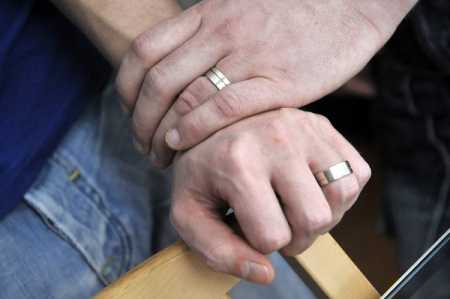|
Tue, 24 Feb, 2015 01:12:54 AM FTimes-Xinhua Report by Denise Wall, Feb 24
The bill was the first piece of legislation spawned from a grassroots initiative to get the seal of approval from MPs. "This citizen's initiative gathered more than 120,000 supporters within 24 hours of being launched. We could have closed it then but we kept it open to collect more backing over the six-month period and to help lobby support among MPs," explained Joonas Pekkanen of the NGO Open Ministry, which led the campaign for marriage equality. Finland adopted new legislation in 2012 that allows for citizens' initiatives to form the basis of new legislation once they gather 50,000 supporting signatures in six months or less. On Nov. 28 last year, MPs voted 105 to 92 to narrowly approve the right of same-sex couples to legally exchange vows. The contentious issue had previously been sponsored by lawmakers, but was defeated in the committee stage following staunch resistance from the opposition Finns and Centre parties. Some MPs from two members of the governing coalition -- the Christian Democrats and National Coalition Party -- also opposed the bill.
"For the most part, the campaign was conducted virtually. Different groups connected via social media and there was also a lot of political lobbying to bring the issue to the attention of MPs such as phone calls, meetings and so on," Pekkanen said. "There was also no negative rhetoric. It was a clean campaign that helped the undecided to support the bill," he added. Laura Nurminen, a project manager at the Justice Ministry and coordinator of the online platform for crowd-sourced legislation, pointed out that although the same-sex marriage initiative proved to be highly popular, the process behind making an initiative into law isn't as well-known. She said the campaign's supporting campaign and timing had much to do with its success. "Active campaigning is one of the key issues behind the success. But it was also about the issue - if people feel the idea is something they can support," she noted. In spite of the popularity of the marriage equality initiative, it is the only success story in Finland's open democracy process. Since the move to crowd sourced legislation began in 2012, just one previous citizens' initiative out of more than 200 managed to make it before lawmakers for consideration. That bill proposed a ban on fur farming in Finland, and was soundly defeated by 146 to 36 votes back in 2013. Five others were blocked at the committee stage. Pekkanen observed that there were still some kinks to be worked out in the existing system, which was designed to handle traditional approaches to lawmaking. "Parliamentary procedures are not designed to handle citizens' initiatives. They are now handled like government bills. However, government bills have the option of public discussion beforehand. Citizens' initiatives should be open for ongoing public discussion while in parliament," he remarked. Pekkanen said that when citizens' initiatives reach the committee stage in parliament, those proceedings are not public. "This means that campaigners cannot get their hands on expert statements to address errors or misunderstandings. Campaigners are heard only once at the start of the proceedings," he added. In spite of the teething pains involved in opening up the legislative process to the general public, both Nurminen and Pekkanen are optimistic about the prospects of participatory democracy. "Now that there is an example that this can work, it can be an inspiration. We now have an example that this is possible on the grassroots and the government side," Nurminen said. More News
|
|
Finland Times
| Tuesday, 23 April, 2024 |



